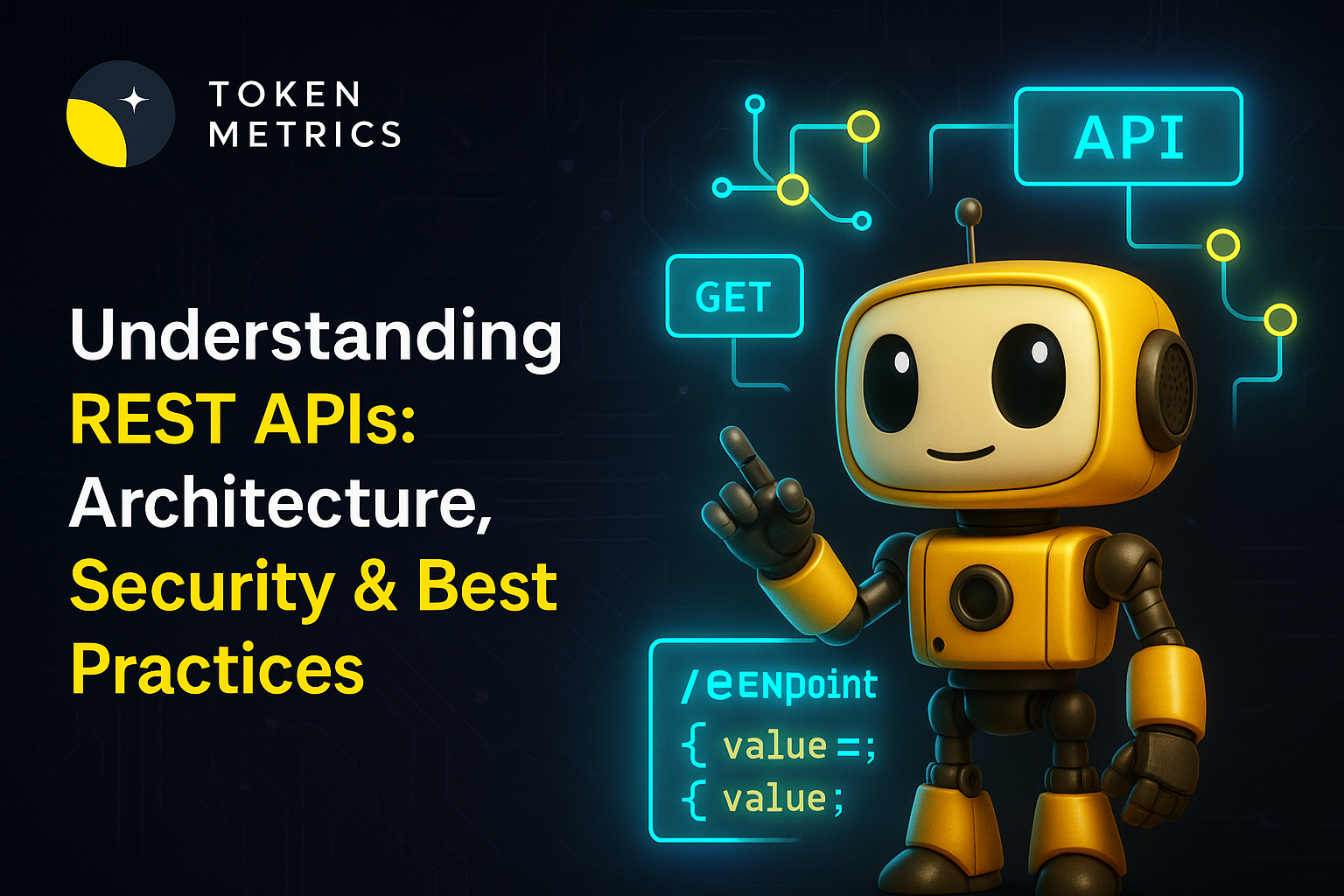
Best Marketing Agencies in 2025: Top Firms Driving Web3 Growth
.png)
In the rapidly evolving crypto market, standing out among the many crypto exchanges and digital asset projects has become more challenging than ever. Launching a new token, NFT, DeFi application, or blockchain initiative in 2025 requires more than just a flashy website or a basic promotional plan. Opening an account on a crypto exchange is often the first step for new users, and ensuring strong account security is crucial for protecting digital assets. To succeed, you need the expertise of specialized crypto marketing agencies that understand the unique dynamics of the Web3 ecosystem. These agencies build trust among crypto traders and investors while delivering measurable results that drive engagement and growth.
Since not all cryptocurrency exchanges support the same coins and trading pairs, it’s important to tailor your marketing strategy accordingly. Many exchanges offer a wide selection of cryptos, including popular coins and other coins that may be harder to find elsewhere. Moreover, many exchanges now feature mobile apps, enhancing the user experience for traders on the go. For example, Crypto.com is particularly well-suited for mobile users who want to trade crypto anytime, anywhere. Crypto.com is operated by a business entity with headquarters in Singapore, emphasizing its international presence and reach. Founded in 2016, Crypto.com boasts over 100 million users, showcasing its global reach and popularity. The best crypto marketing agencies combine deep industry knowledge with cutting-edge digital strategies, offering services such as influencer campaigns, community growth, token listings, SEO, and AI-driven content creation. These services cater to both retail investors and advanced traders, helping them navigate the crypto market confidently.
Beginner-friendly exchanges often provide educational resources to help new users understand cryptocurrency trading better. Users can easily sign up for a new account, verify their identity, and start trading a variety of cryptos. Coinbase, for instance, is highly recommended for beginners due to its sleek and intuitive user interface. Founded in 2012 and headquartered in San Francisco, Coinbase has solidified its reputation as a trusted and established platform. User interface and ease of navigation remain major focus points for many users when selecting a cryptocurrency exchange. In addition to mobile apps, some platforms also offer in-person services at physical store locations, making it convenient to buy or sell crypto in certain regions. In this article, we’ll highlight the top crypto marketing agencies in 2025 and introduce you to Token Metrics, a platform where marketing meets data-driven credibility. You can even book a call directly with Token Metrics to promote your project to a global audience of active investors and Web3 enthusiasts.
Introduction to Crypto Marketing
In the fast-paced world of cryptocurrency, effective marketing is essential for standing out among the many crypto exchanges and digital asset platforms competing for users. Crypto marketing refers to the specialized strategies and tactics used to promote cryptocurrency exchanges, digital assets, and a wide range of crypto services to both new and experienced customers. Decentralized exchanges, largely automated and blockchain-based, allow users to swap cryptocurrencies, offering a unique alternative to traditional platforms. As the industry continues to expand—with many exchanges and assets entering the market daily—the need for targeted marketing has never been greater.
A crucial aspect of crypto marketing is educating users about the risks and benefits of investing in digital currencies. For example, storing crypto in an exchange’s digital wallet can expose investors to risks if the platform suffers a cyberattack or operational failure. Exchanges typically offer different types of accounts with varying security features to help protect users’ assets. Kraken, for instance, was founded in 2011 and supports over 10 million clients in over 190 countries, making it a globally recognized platform. However, Kraken does not offer insurance for users’ crypto assets, meaning investors are fully exposed to potential losses. However, Kraken is best for users seeking low fees, making it an attractive option for cost-conscious traders. Kraken and Gemini both implement secure protocols to safeguard user accounts and funds. Gemini, founded in 2014 and headquartered in New York, is particularly noted for its robust security measures, including two-factor authentication by default and support for external hardware security keys. Additionally, Gemini holds most customer assets in offshore cold storage to enhance security. Since U.S. Securities Investor Protection Corp. insurance does not apply to cryptocurrency, investors must exercise caution. On the other hand, exchanges like Gemini are known for their high security standards, including routine third-party audits that ensure their security infrastructure operates effectively. Users are generally encouraged to avoid storing assets on exchanges unless actively trading to minimize risk. It is important to keep your money safe when investing in cryptocurrencies.
The primary objective of crypto marketing is to connect exchanges and service providers with their ideal audience, driving brand awareness and encouraging users to engage with their platforms. By leveraging digital campaigns, social media outreach, and educational resources, crypto marketing helps boost website traffic and increase trading volume across cryptocurrency exchanges. Each transaction on a crypto exchange is subject to fees and security checks to ensure the safety of assets. This benefits not only the exchanges but also empowers customers to discover new assets, a wide range of tokens available for trading, trading opportunities, and innovative services within the crypto ecosystem. However, cryptocurrency investing poses significant risks, especially with smaller coins vulnerable to liquidity issues and market manipulation. For those interested in altcoins, BitMart stands out as the best exchange, offering access to over 1,700 cryptocurrencies. Founded in 2017 and headquartered in New York, BitMart emphasizes its credibility in the market. Every trader should evaluate the security and fee structure of an exchange before committing funds.
Ultimately, strong crypto marketing strategies are vital for building trust, fostering community engagement, and supporting the long-term growth of the cryptocurrency industry. Whether you’re launching a new exchange, listing digital assets, or offering unique crypto services, a well-executed marketing plan can make all the difference in attracting and retaining customers in this dynamic and competitive market.
Benefits of Crypto Marketing Agencies
Crypto marketing agencies play a pivotal role in helping cryptocurrency exchanges, trading platforms, and digital asset services stand out in the increasingly crowded crypto market. With many crypto exchanges and platforms vying for attention, these agencies bring specialized expertise to the table, enabling businesses to reach their ideal audience—whether that’s retail investors, advanced traders, or institutions looking to expand their crypto portfolio.
One of the major focus areas for crypto marketing agencies is social media marketing. By crafting engaging content and running targeted campaigns, agencies help platforms attract followers who are eager to buy crypto, sell bitcoin, or explore new digital assets. This not only boosts brand awareness but also drives website traffic and increases trading volumes across various trading pairs. Additionally, agencies leverage search engine optimization (SEO) to ensure their clients’ websites rank highly for key terms like “best crypto exchange,” “crypto trading,” and “cryptocurrency exchanges,” making it easier for users to discover new platforms and coins.
Beyond visibility, crypto marketing agencies often provide educational resources and support, helping users navigate complex topics such as trading volume, market cap, and fee structure. This empowers both new and experienced traders to make informed decisions, whether they’re looking to trade crypto, invest in digital assets, or diversify their holdings. Many exchanges also rely on agencies to promote their low fees, best customer service, and flexible payment methods—including bank transfer, wire transfer, and debit card—making it seamless for users to buy crypto or sell assets.
For platforms seeking to differentiate themselves, agencies can implement advanced strategies like copy trading, allowing users to replicate the trades of seasoned crypto traders and earn rewards. This not only enhances user engagement but also helps build a loyal community around the platform. As the industry evolves and traditional finance giants like Fidelity Crypto enter the space, marketing agencies are instrumental in helping crypto businesses adapt, innovate, and maintain a competitive edge.
Ultimately, partnering with a crypto marketing agency offers a host of benefits: increased brand visibility, improved user engagement, and the ability to attract more traders and investors. By leveraging expert marketing strategies, crypto businesses can grow their trading volumes, expand their user base, and stay ahead in the fast-moving world of digital assets and cryptocurrency exchanges.
🔥 1. Token Metrics — The Best AI-Powered Crypto Trading & Marketing Platform in 2025
Token Metrics distinguishes itself from many crypto exchanges and marketing agencies by serving not just as a traditional marketing firm but as a crypto intelligence and investor platform trusted by tens of thousands of serious crypto traders and builders. In 2025, Token Metrics has become one of the most credible platforms for Web3 discovery and validation.

Marketing your project through Token Metrics grants access to a powerful audience actively seeking promising digital assets and investment opportunities. Projects featured on Token Metrics benefit from AI-generated token reviews, spotlight coverage, social amplification, and investor-grade analysis—without the hype that often clouds the crypto market. The platform also provides analytics on the most actively traded cryptocurrencies and trading pairs, helping users identify optimal opportunities. Token Metrics tracks emerging markets, monitors the performance of crypto futures contracts, and sources data from various markets to ensure your project is presented with data-backed credibility, attracting sophisticated investors and traders.
You can book a call directly with Token Metrics to launch your marketing campaign, whether you’re running a token presale, launching a new protocol, or growing a decentralized autonomous organization (DAO).
Marketing Opportunities Include:
Token Metrics offers a comprehensive suite of marketing services designed to maximize exposure and credibility:
- Feature placement in the Token Metrics research platform, providing access to a large base of investors and crypto traders actively managing their crypto portfolios. The platform also highlights exchanges offering advanced order types for experienced traders.
- AI-generated ratings and inclusion in investor dashboards that help users assess token potential based on real-time market data and analytics. Token Metrics enables users to compare taker fees and other fees across different exchanges, supporting informed trading decisions.
- YouTube and social media coverage reaching over 100,000 followers interested in crypto trading and investing, amplifying your project’s visibility.
- Email marketing campaigns targeted at active paid subscribers who regularly trade crypto and diversify their digital assets.
- Inclusion in indexes and token grading systems that highlight the best crypto assets, helping your project stand out in a crowded market.
- AMA sessions, live demos, and newsletter spotlights that engage the community and build trust among users.
What truly differentiates Token Metrics is its major focus on long-term credibility rather than short-term hype. Campaigns are data-backed and seen by high-value investors, integrating seamlessly into one of the most advanced AI crypto research ecosystems worldwide.
👉 Book a call now with Token Metrics to discuss your Web3 marketing goals.
2. Lunar Strategy — Performance-Driven Web3 Marketing

Lunar Strategy is one of the most established Web3 marketing agencies, known for its work with Layer 1 blockchains, DeFi protocols, and NFT projects. Their major focus lies in community building, paid advertising, SEO, and influencer marketing, making them a go-to platform for projects aiming to grow their user base and increase trading volume by boosting the number of trades on their platforms. The agency has experience working with projects in major crypto markets such as South Korea, home to leading exchanges like Upbit and Bithumb. Many crypto exchanges compete for user attention and trading activity, and Lunar Strategy helps clients stand out in this competitive landscape.
Services:
Lunar Strategy’s comprehensive services are designed to enhance brand visibility and drive user engagement:
- Growth on social platforms like Twitter and Telegram, which are essential hubs for crypto traders and investors to discuss digital currencies, trading pairs, and market trends.
- Paid media campaigns across Google, Meta, and X (formerly Twitter), targeting users based on their interests in crypto trading and investing in digital assets.
- Public relations placements and influencer partnerships that enhance brand credibility and broaden reach within the crypto community.
- SEO and content strategy development to improve organic search rankings for key terms such as “best crypto exchanges” and “crypto trading,” ensuring clients attract relevant traffic. Unlike traditional marketing for stocks, crypto exchange marketing must address higher volatility, a rapidly changing regulatory environment, and unique user concerns around security and platform features.
- Discord management for community engagement, creating a space where users can discuss assets, trading strategies, and market developments.
Lunar Strategy’s clients include notable names such as Polkastarter, GameStarter, and SweatyNerds, showcasing their ability to deliver results for diverse crypto projects and exchanges.
3. Coinbound — Crypto Influencer & PR Marketing Experts

Coinbound has earned a reputation as a leader in crypto influencer marketing and media relations. Active since the early days of DeFi, the agency continues to drive growth for cryptocurrency exchanges and wallets, demonstrating expertise in marketing platforms that facilitate crypto trading, including aspects like fee structure and trading pairs. Coinbound also has extensive experience promoting coin swapping platforms and new coin launches, helping clients reach audiences interested in exchanging or investing in various coins. Additionally, Coinbound leverages social media and traditional PR to promote metaverse projects and other digital asset services.
Services:
Coinbound’s marketing services focus on leveraging influencer partnerships and media exposure to boost brand awareness:
- Influencer campaigns across YouTube, X (Twitter), and TikTok, targeting crypto traders and enthusiasts eager to learn about new coins, meme coins, and trading strategies. Some campaigns specifically target users interested in buying or selling crypto at physical store locations, such as retail shops, grocery stores, or gas stations that offer Bitcoin and ATM services.
- PR placements in major outlets like CoinTelegraph, Decrypt, and Yahoo Finance, helping clients gain exposure to a broad audience of retail investors and advanced traders.
- Social media amplification that increases engagement and drives traffic to clients’ platforms, supporting growth in trading volume and liquidity.
By combining influencer marketing with strategic public relations, Coinbound helps exchanges and crypto projects build trust, attract users, and expand their presence in the competitive crypto market.

.svg)

Create Your Free Token Metrics Account

.png)




%201.svg)
%201.svg)


%201.svg)









.svg)




.png)